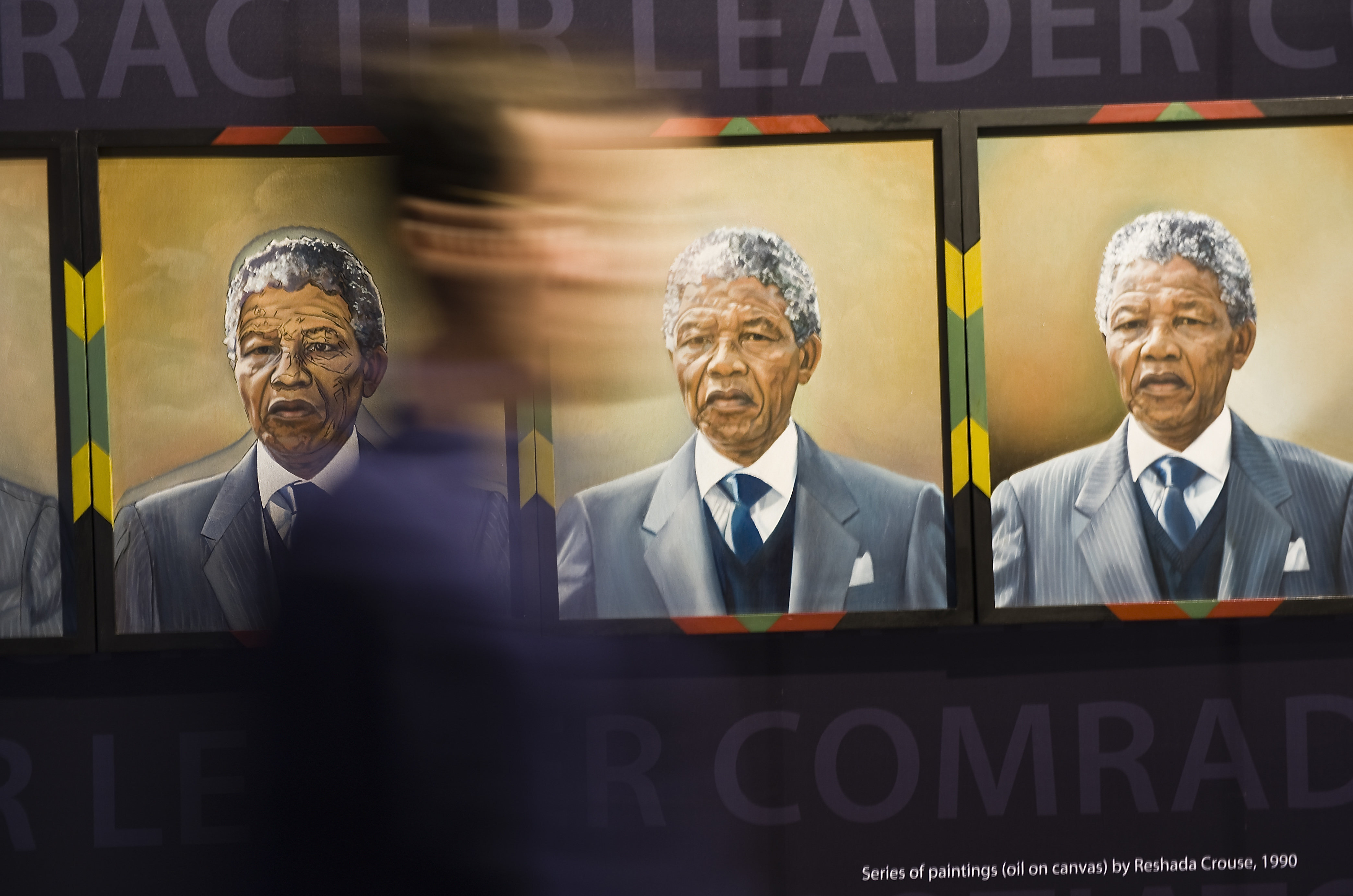Mandela Day
How many leaders like Mandela are required to defeat populism?

Am 18. Juli 1918 wurde Nelson Mandela geboren.
© picture alliance / SvenSimon | Anke Fleig / SVEN SIMONNelson Mandela, alongside Mahatma Gandhi and Martin Luther King, is considered one of the great inspirational icons of the 20th century. It is often forgotten that these men, in their time, were denounced, persecuted, and imprisoned as criminals, rebels, and - in the case of Nelson Mandela - terrorists.
Mandela's Values Under Threat
The values that Nelson Mandela stood for and which he so eloquently put forward and defended at his trial in 1964 - equality of all people before the law, the rule of law, freedom of expression, and freedom of assembly - are once again under pressure in South Africa today. These original liberal values, for which Mandela is celebrated internationally, are increasingly being called into question by his political heirs.
The immediate history of South Africa and the transition from apartheid to democracy are the subject of diverse opinions. Countless books, articles, films, and recordings from a wide range of perspectives, from Mandela himself to representatives of the apartheid government, international diplomats, and various political actors. One example of this diversity of opinion are the conferences in Dakar and Leverkusen, co-organized by the Friedrich Naumann Foundation for Freedom, at which representatives of the white minority met with ANC leaders at the end of the 1980s. While some African nationalists regard these meetings as insignificant, liberal circles see them as key to the end of apartheid.
These different interpretations of history also have a concrete impact on Mandela's legacy. Many of his liberal values are being brought into the public debate today, especially by the liberal opposition party and the foundation partner Democratic Alliance (DA). At the same time, extremist populists such as the Economic Freedom Fighters (EFF) and uMkhonto weSizwe (MK) blame Mandela for persistent poverty and unemployment and accuse him of having enshrined the right to private property in the constitution. However, these populist views ignore reality: rather, the persistent poverty and unemployment are the result of the rampant corruption and incompetence of the African National Congress (ANC), which has been in power ever since.
The Changing Political Landscape
The recent elections have fundamentally changed South Africa's political landscape. The ANC has lost its majority, and the DA has succeeded in becoming the strongest opposition party in the government coalition, with almost the same result as in the last parliamentary elections. This change opens up new opportunities to bring the liberal principles that Mandela embodied back into the political discourse. The DA, now a significant part of the new government, has the opportunity to implement these values in key positions and promote a sustainable and fairer society.
However, the recent election has shown that a not insignificant proportion of the South African electorate clearly voted for populism. A large proportion of the votes lost to the ANC went to MK, Jacob Zuma's party, and to the EFF under the leadership of Julius Malema. Both parties, which are led by former ANC cadres, clearly stand for populist policies. This underlines the increasing lure of populist promises in South African politics and shows that South Africa is on a dangerous political course that could now possibly be corrected by liberal approaches and centrist parties.
Reflections on Mandela's Legacy
A more authentic impression of Mandela and his legacy as an icon, politician, and human being is provided by the interviews conducted by the Freedom Foundation with three leading South African politicians on the occasion of Mandela's 100th birthday. In these interviews, it becomes clear what Mandela's legacy really means for South Africa today.
The dispute over the interpretation of South Africa's contemporary history will continue for many decades to come. It is to be hoped that Mandela will be celebrated on his 200th birthday for his contribution to the end of apartheid without any negative instrumentalisation. In addition to his political work, his human qualities are also exemplary. Mandela impressed with his courage, his humanity, and his astute self-assessment. His words speak for themselves: “People tend to measure themselves by external accomplishments, but jail allows a person to focus on internal ones, such as honesty, sincerity, simplicity, humility, generosity and an absence of variety. You learn to look into yourself.”
Mandela Day reminds us that the struggle for freedom, equality, and justice continues. It is up to us to honour his legacy by defending and promoting these values - today and in the future.
